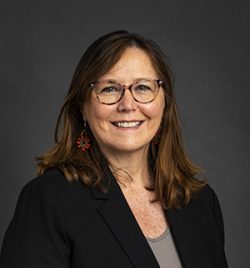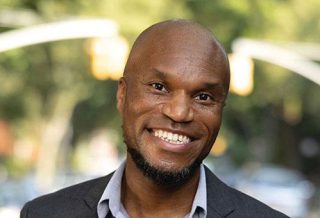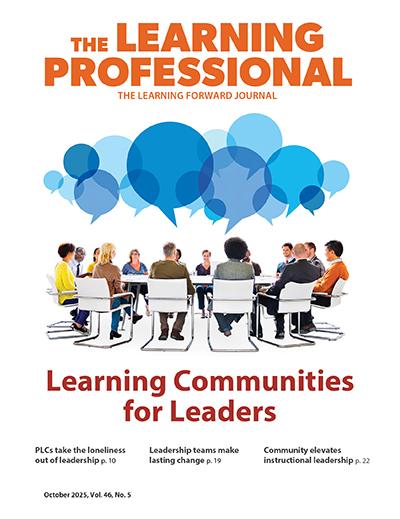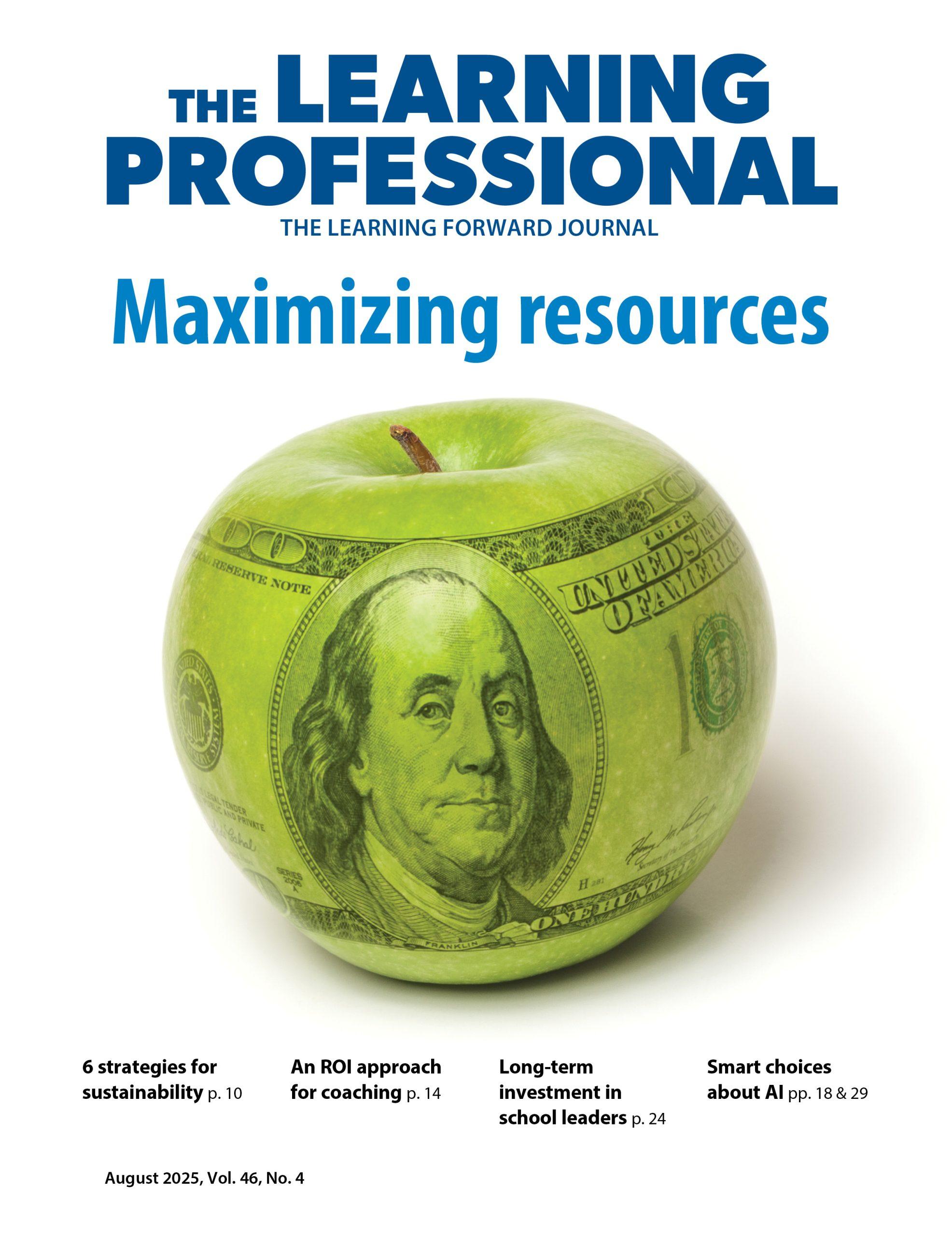IDEAS
Stress, burnout, and mental health among teachers of color
By Christopher J. Cormier, Venus Wong, John H. McGrew, Lisa A. Ruble and Frank C. Worrell
Categories: Leadership, Reaching all students, Social & emotional learningFebruary 2021
Read the remaining content with membership access. Join or log in below to continue.
Sed ut perspiciatis unde omnis iste natus error sit voluptatem accusantium doloremque laudantium, totam rem aperiam, eaque ipsa quae ab illo inventore veritatis et quasi architecto beatae vitae dicta sunt explicabo. Nemo enim ipsam voluptatem quia voluptas sit aspernatur aut odit aut fugit, sed quia consequuntur magni dolores eos qui ratione voluptatem sequi nesciunt. Neque porro quisquam est, qui dolorem ipsum quia dolor sit amet, consectetur, adipisci velit, sed quia non numquam eius modi tempora incidunt ut labore et dolore magnam aliquam quaerat voluptatem.
Here are more sources of support for minoritized teachers of color.
- Profound Gentlemen (www.profoundgentlemen.org) is a nonprofit with a focus on mentoring and creating community for male minoritized teachers of color.
- The Division for Culturally and Linguistically Diverse Exceptional Learners (community.cec.sped.org/ddel/home) is a supportive group of minoritized teachers of color in K-12 schools.
- Cormier and Scott (2020) outline several advocacy strategies for minoritized teachers of color in special education.
What administrators can do to reduce burnout for minoritized teachers of color
- Have clear policies that are applied equally to all teachers.
- Ensure that all teachers feel that they and their culture are valued and respected members of the school community.
- Visit their classes and appreciate their unique styles and strengths.
- Ask how you can be an ally.
- Provide clear and realistic job expectations.
- Provide support for autonomy.
- Increase respectful communication.
- Create social situations where all cultural groups feel welcome.
References
Awa, W.L., Plaumann, M., & Walter, U. (2010). Burnout prevention: A review of intervention programs. Patient Education and Counseling, 78(2), 184-190.
Billingsley, B. & Bettini, E. (2019). Special education teacher attrition and retention: A review of the literature. Review of Educational Research, 89(5), 697-744.
Bristol, T.J. & Mentor, M. (2018). Policing and teaching: The positioning of Black male teachers as agents in the universal carceral apparatus. The Urban Review, 50(2), 218-234.
Brunsting, N.C., Sreckovic, M.A., & Lane, K.L. (2014). Special education teacher burnout: A synthesis of research from 1979 to 2013. Education and Treatment of Children, 37(4), 681-711.
Cormier, C.J. & Scott, L.A. (2020). Castaways on Gilligan’s Island: Minoritized special education teachers of color advocating for equity. TEACHING Exceptional Children, 53(3), 234-242.
Dixon, D., Griffin, A., & Teho, M. (2019, September). If you listen, we will stay: Why teachers of color leave and how to disrupt teacher turnover. The Education Trust & Teach Plus.
Herman, K.C, Prewett, S.L., Eddy, C.L. Savala, A., & Renke, W.M. (2020). Profiles of middle school teacher stress and coping: Concurrent and prospective correlates. Journal of School Psychology, 78, 54-68.
Katz, S.J., Kessler, R.C., Frank, R.G., Leaf, P., & Lin, E. (1997). Mental health care use morbidity, and socioeconomic status in the United States and Ontario. Inquiry, 38-49.
Kessler, R.C., Berglund, P., Demler, O., Jin, R., Merikangas, K.R., & Walters, E.E. (2005). Lifetime prevalence and age-of-onset distributions of DSM-IV disorders in the National Comorbidity Survey Replication. Archives of general psychiatry, 62(6), 593-602.
Maslach, C., Jackson, S.E., & Leiter, M.P. (1997). Maslach Burnout Inventory (3rd ed.). In C.P. Zalaquett & R.J. Wood (Eds.), Evaluating stress: A book of resources (pp. 191-218). Scarecrow Education.
Reiss, F. (2013). Socioeconomic inequalities and mental health problems in children and adolescents: A systematic review. Social Science & Medicine, 90, 24-31.
Ruble, L., Yu, Y., Watkins, M., Adams, M., McGrew, J., & Salyers, M. (2019, January). Adapting an evidence-based burnout intervention for special educators. [Poster presentation]. Annual Project Director’s Meeting, Institute of Education Sciences, Washington, DC, United States.
Salyers, M.P., Hudson, C., Morse, G., Rollins, A.L., Monroe-DeVita, M., Wilson, C., & Freeland, L. (2011). BREATHE: A pilot study of a one-day retreat to reduce burnout among mental health professionals. Psychiatric Services, 62(2), 214-217.
Williams, D.R., Mohammed, S.A., Leavell, J., & Collins, C. (2010). Race, socioeconomic status and health: Complexities, ongoing challenges and research opportunities. Annals of the New York Academy of Sciences, 1186, 69.
Wong, W.H., Ruble, L., Yu, Y., & McGrew, J. (2017). Too stressed to teach? Teaching quality, student engagement and IEP outcomes. Exceptional Children, 83(4), 412-427.
World Health Organization. (2001). The World Health Report 2001: Mental health: New understanding, new hope. Author.
Zuckerman, M. (1999). Diathesis-stress models. In M. Zuckerman (Ed.), Vulnerability to psychopathology: A biosocial model (pp. 3-23). American Psychological Association.
Categories: Leadership, Reaching all students, Social & emotional learning
Recent Issues
MAXIMIZING RESOURCES
August 2025
This issue offers advice about making the most of professional learning...
MEASURING LEARNING
June 2025
To know if your professional learning is successful, measure educators’...
NAVIGATING NEW ROLES
April 2025
Whether you’re new to your role or supporting others who are new,...
LEARNING DESIGNS
February 2025
How we learn influences what we learn. This issue shares essential...
















